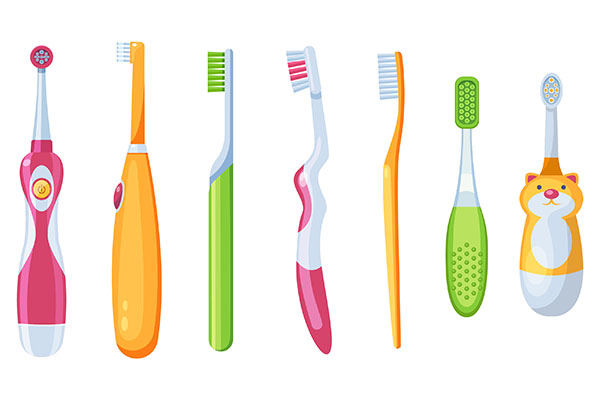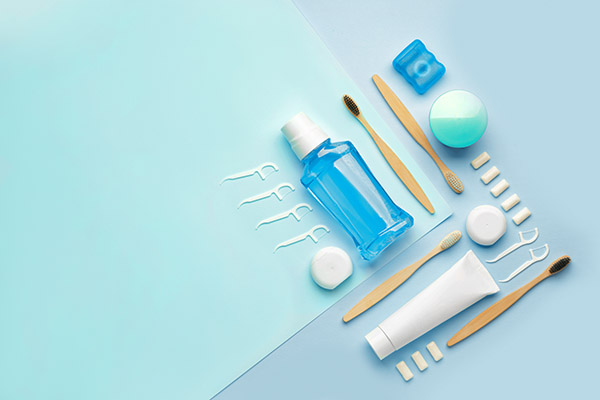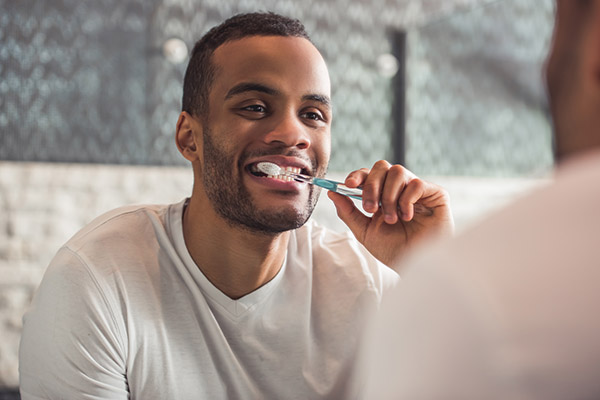 Teeth brushing is one of the most important oral hygiene basics, as it removes plaque from teeth. However, the toothbrush you use can impact how effective this practice is.
Teeth brushing is one of the most important oral hygiene basics, as it removes plaque from teeth. However, the toothbrush you use can impact how effective this practice is.
To optimize toothbrushing, you need to find a brush that fits your needs. Fortunately, there are many options out there.
Types of toothbrushes
When you first learned oral hygiene basics, you probably started with a manual brush designed for kids. However, manufacturers have created new models over the years, providing diversity in the supermarket aisle. Today, you can choose from the following toothbrushes.
Electric
Electric toothbrushes have a moving head and run on batteries. Most models are rechargeable and let you replace the head. The American Dental Association recognizes that electric and manual brushes are equally effective at removing plaque, but some people may benefit from powered options.
For example, people with dexterity issues, such as individuals with disabilities or of advanced age, may clean their teeth more effectively with a powered toothbrush. Because the motor does all the work, people using electric brushes only have to gently apply the bristles, making the cleaning process more manageable.
Manual
Manual toothbrushes require the user to apply pressure and move the brush. One of the cheapest options, manual brushes is easy to replace after the recommended three months. Various models also offer different handle designs to fit in your palm comfortably.
Types of bristles
When teaching oral hygiene basics, dentists recommend using soft-bristled brushes. However, there are three different levels of bristle firmness:
Why are there multiple options if only one is recommended? The truth is, you may benefit from using any of them if you do so in the correct way.
Hard
Hard-bristle brushes are more abrasive, which makes them excellent for scrubbing away stains. However, not everyone should use a hard-bristle brush. Individuals who frequently eat foods that easily stain will get the most out of these brushes. The following are popular foods that contribute to stains:
- Red wine
- Coffee
- Tomato-based sauces
- Curry
Keep in mind that you should not use this type of toothbrush every day. Instead, you should only use it occasionally when you notice stains.
Medium
Some people feel that soft-bristle brushes are not effective enough, so they choose medium-bristles. These bristles are marginally firmer than those labeled "soft" and so are more abrasive. While this increase does remove plaque more efficiently, it can also harm gums if you scrub too hard.
Soft
In most cases, soft bristles are firm enough to clean teeth effectively. Even more importantly, they do not damage gums. Many people brush too hard, irritating their gums and even causing abrasions. Choosing soft bristles protects your gums, though you should still try to only apply gentle pressure.
Toothbrushes right for you
Now that you know all the options, you can find the toothbrush that is right for you. With the perfect brush in hand, you can more effectively eliminate plaque and keep your smile bright.
Request an appointment or call The Smile Spa at 818-573-2196 for an appointment in our Agoura Hills office.
Recent Posts
A healthy smile requires a lifetime of focusing on oral hygiene basics. Even if you currently have healthy teeth and history of proper dental care, a review of best practices is helpful to maintain good daily habits.Focus on the details of these broad oral hygiene basics to ensure you retain your healthy, natural pearly whites…
Anyone familiar with oral hygiene basics knows that dentists recommend brushing twice a day: once in the morning and once at night. However, you may not know why this is so. Why is once not enough? After all, experts recommend flossing only once a day. How is brushing your teeth different?Brushing your teeth is a…
Though brushing your teeth is one of the most important oral hygiene basics, flossing is just as vital. Here is how flossing can strengthen your teeth and benefit your overall health.Flossing is an essential part of your oral care routine because it removes plaque from your teeth. Plaque is a soft, sticky substance that bacteria…


